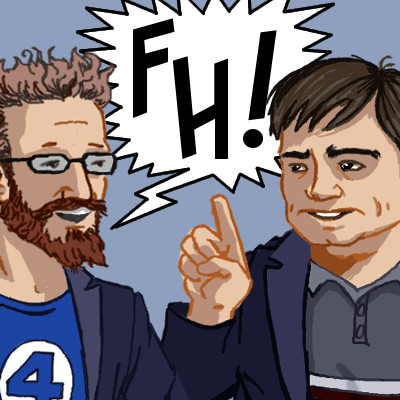So who is Doctor Who, anyway? It’s a fair question, and one that we have to travel 50 years into the past in order to answer fully. This week we pick up with the very first Doctor, mention very briefly “Dr. Who”, and blow through the Second Doctor–essentially all the black and white (and missing)episodes. Join us on a journey through space and time as we ask… who is Doctor Who?
Ross’ Notes
- First up, this episode is in NO WAY meant to be a comprehensive guide, only an introduction. That said, I’m fairly well-versed in Doctor Who lore, so I challenge anyone to find ANY MISTAKES AT ALL with anything that I’ve said.
- FIRST MISTAKE: Doctor Who first aired on 23 November 1963, not 1965.
- Authors C. S. Lewis and Aldous Huxley also died on the same day as John F. Kennedy. In 1963. Not 1965.
- Check out some bio info for Verity Lambert. She’s quite an inspiring person.
- The biopic starring David Bradley that we’re talking about is called An Adventure in Space and Time, and was aired in 2013. You can buy it here:
- Best episodes to hit for the First Doctor (links to the BBC website in a separate window):
- Best episodes to hit for the Second Doctor:
- The Tomb of the Cybermen
- The Enemy of the World Recently rediscovered!
- The Invasion
- The Seeds of Death
- The War Games
- Find out more about the Peter Cushing Dr Who here. He’s largely been forgotten, which is kind of a shame, but the movies add almost nothing to the mythos of The Doctor, having been made from rewritten episodes and not any better realised the second time around.
- CORRECTION: Did I say that Derrick Sherwin died? He did not! I think I was thinking of the great Berry Letts.
- Graeme Harper is the guy who has directed for both the old Doctor Who series and the new series. His first directed episodes were the Caves of the Adrozani in 1984, which was the last Fifth Doctor story, and he rejoined the family in 2006, during the David Tennant/RTD run.
- I’ll give a shout out to the Tardis Data Core, which is a fan-run wikia, and is the bookmark I always go to first for Doctor Who info.

















